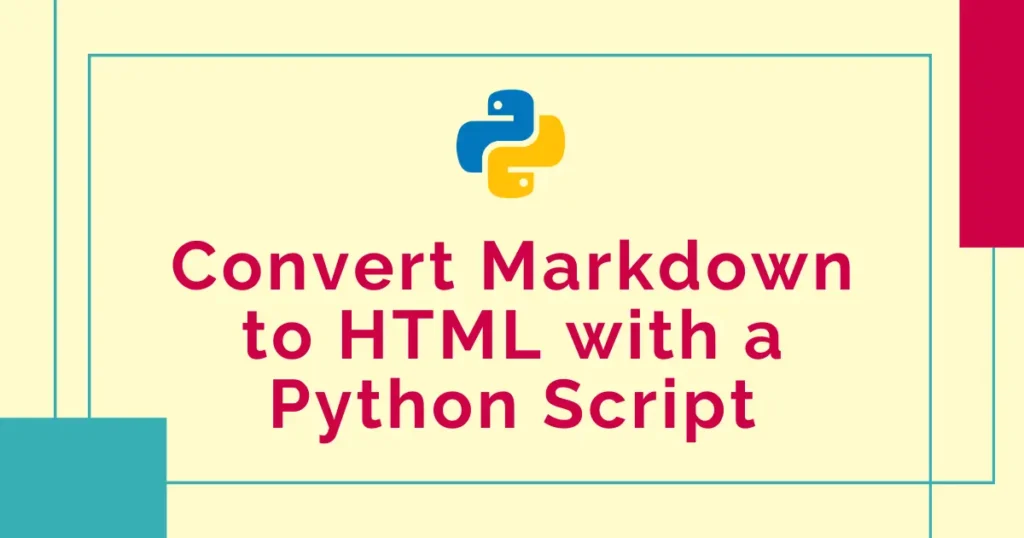Writers create most technical documentation, blogs, and project files in Markdown format and then convert them to HTML for website publishing or display. In this tutorial, you will learn how to convert Markdown to HTML using Python with ease. This approach is ideal for developers who are looking to automate Markdown conversions for reports, blogs, or CMS systems.
Given Python’s built-in functionality and available libraries, this will be pretty fast and seamless. Now, let’s go about a practical example that helps you convert Markdown content instantly into HTML output.
Using the Python Markdown Library
The Python Markdown library makes it easy to convert Markdown content into HTML. It’s a popular library and is available on PyPI. It also supports multiple Markdown extensions. You can install the package using pip:
pip install markdownIt reads Markdown text and returns clean, formatted HTML that you can display on your web pages or store as HTML files.
Sample Markdown File
Let’s create a small sample Markdown file named sample.md that includes different tags and formatting scopes for our further use. You can use any markdown file for your implementation the script will work for all types of markdown file.
# Welcome to Markdown Conversion
## About This Guide
Learn how to **convert Markdown to HTML using Python** easily.
### Features
- Simple and fast
- Easy to automate
- Great for documentation
> Markdown to HTML conversion has never been this easy!Python Script to Convert Markdown to HTML
Now, let’s create a python script which reads markdown file and converts it’s content to HTML format. Once HTML is converted, we will store it to file. Create new file and add below python code into it.
import markdown
with open("sample.md", "r", encoding="utf-8") as md_file:
markdown_content = md_file.read()
html_output = markdown.markdown(markdown_content)
with open("output.html", "w", encoding="utf-8") as html_file:
html_file.write(html_output)
print("Markdown converted to HTML successfully!")In above example, it will import markdown plugin and read whole sample file. Then it will convert Markdown content to HTML format and lastly, It will put converted content to the HTML file.
HTML Output
After running the script, the output.html will contain HTML like this:
<h1>Welcome to Markdown Conversion</h1>
<h2>About This Guide</h2>
<p>Learn how to <strong>convert Markdown to HTML using Python</strong> easily.</p>
<h3>Features</h3>
<ul>
<li>Simple and fast</li>
<li>Easy to automate</li>
<li>Great for documentation</li>
</ul>
<blockquote>
<p>Markdown to HTML conversion has never been this easy!</p>
</blockquote>The output is clean, structured, and ready to display on any website. You can further enhance it with CSS for better styling or add heading all remaining tags to generate fully structure HTML web page.
Conclusion
Converting Markdown to HTML using Python is a great way to automate document generation and web publishing. The Markdown library makes it easy to parse Markdown and produce valid HTML output that fits seamlessly into websites, documentation tools, or blog systems.
If you’re interested in other powerful file-handling techniques, you can also explore how to Encrypt and Decrypt Files in Python, allowing you to keep your data secure while processing content.

